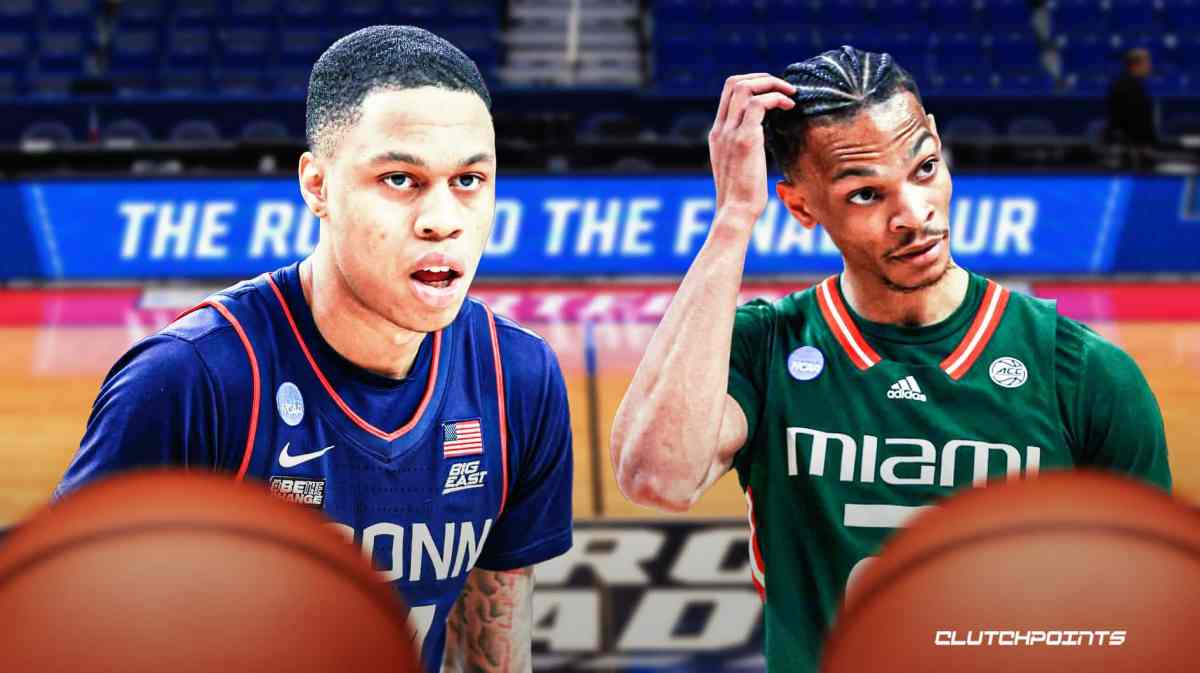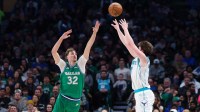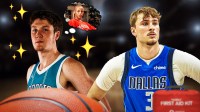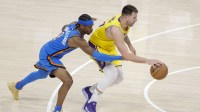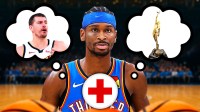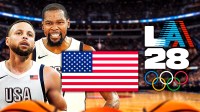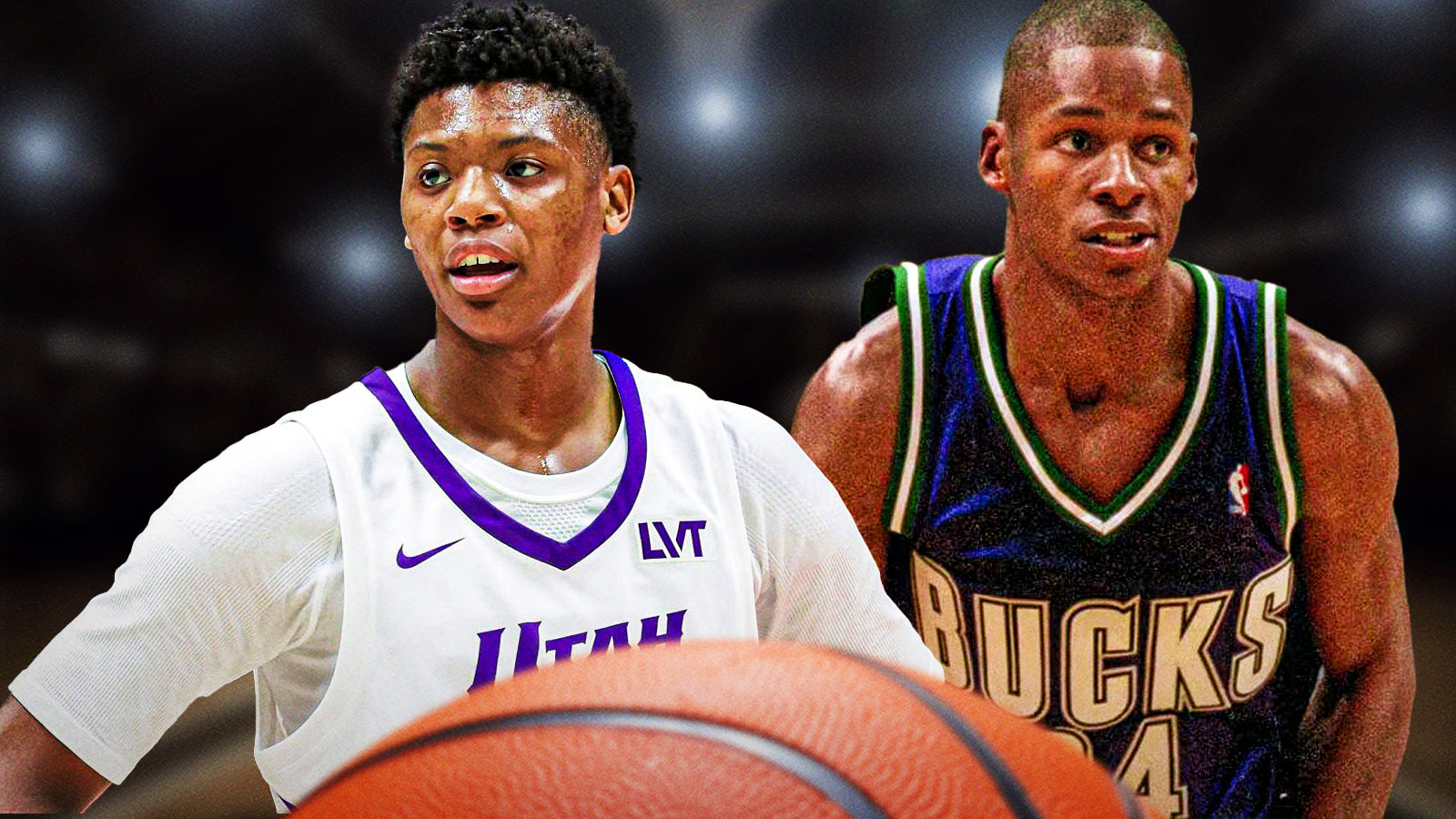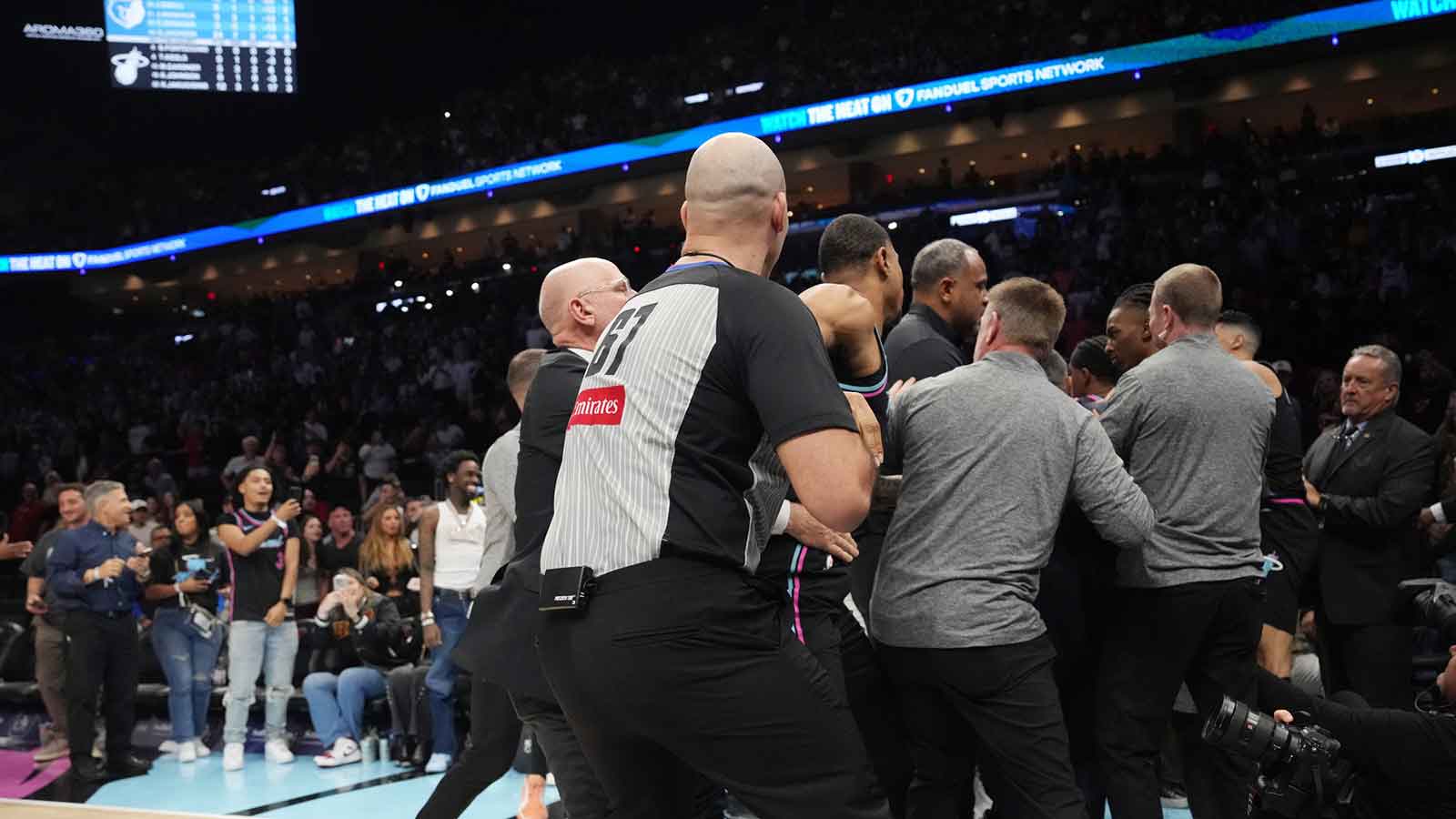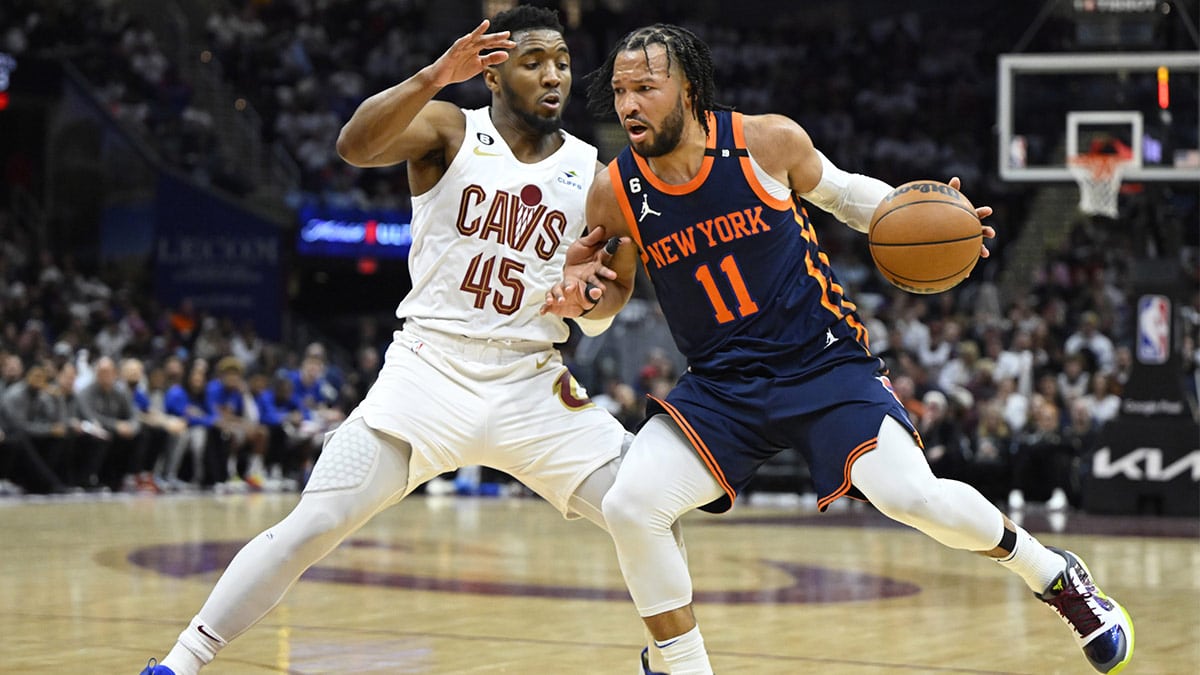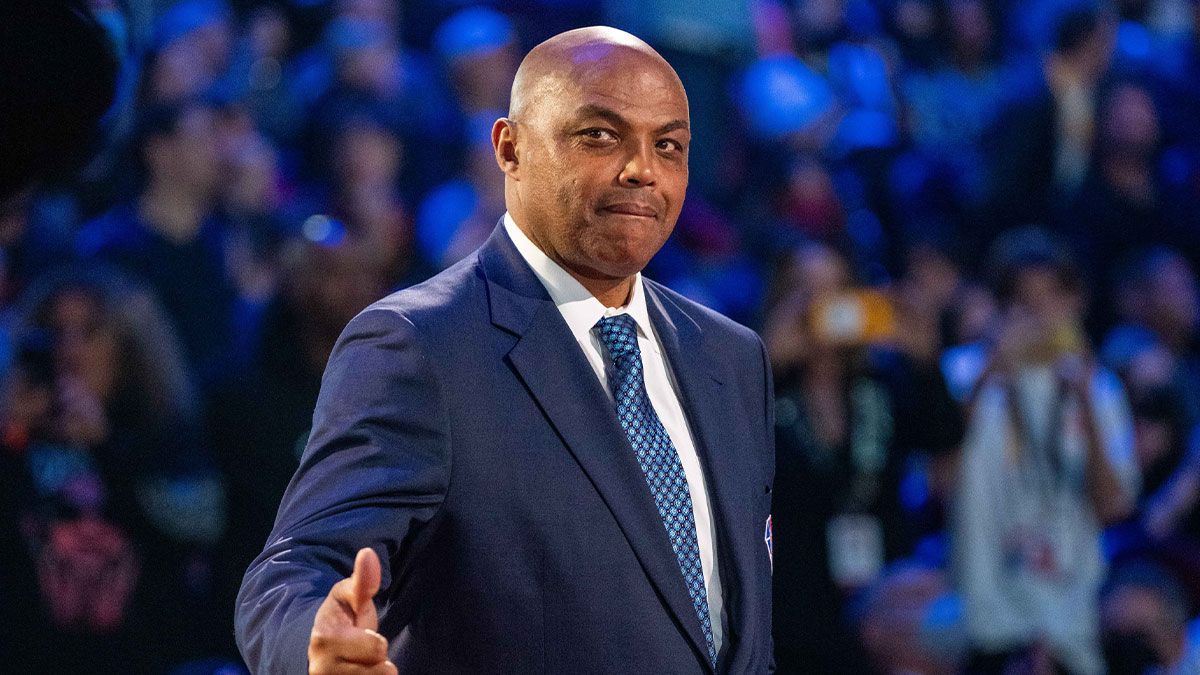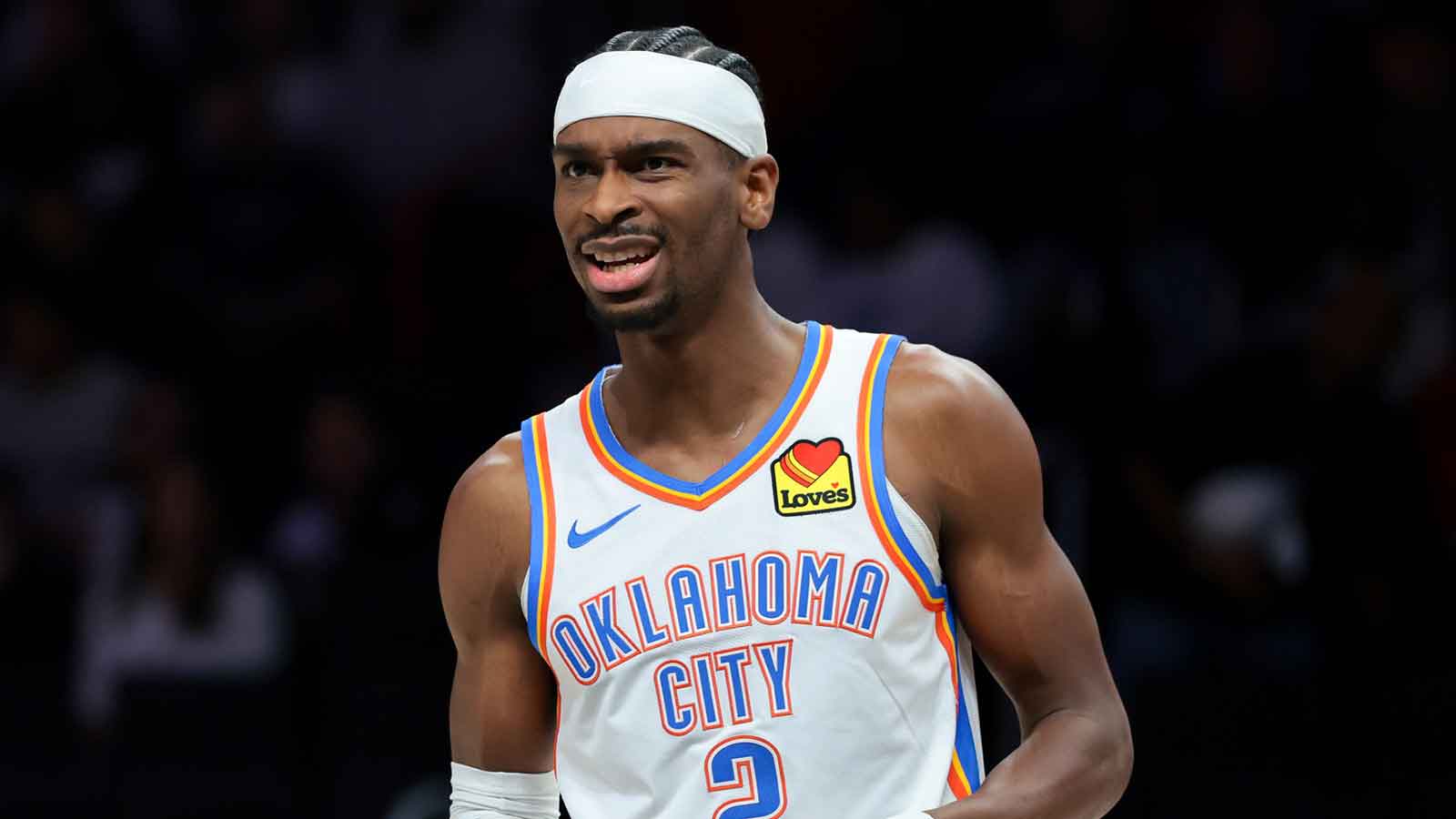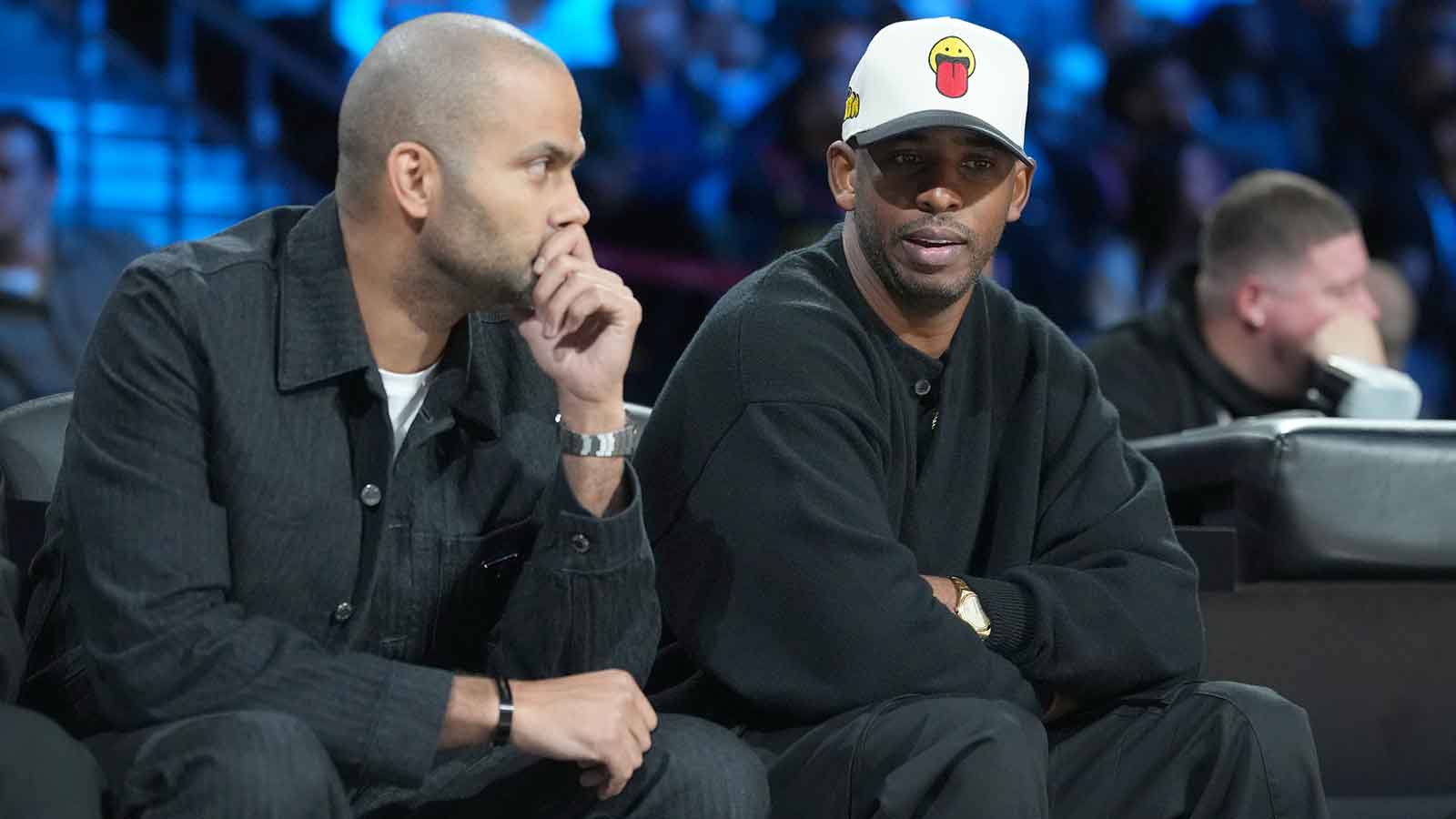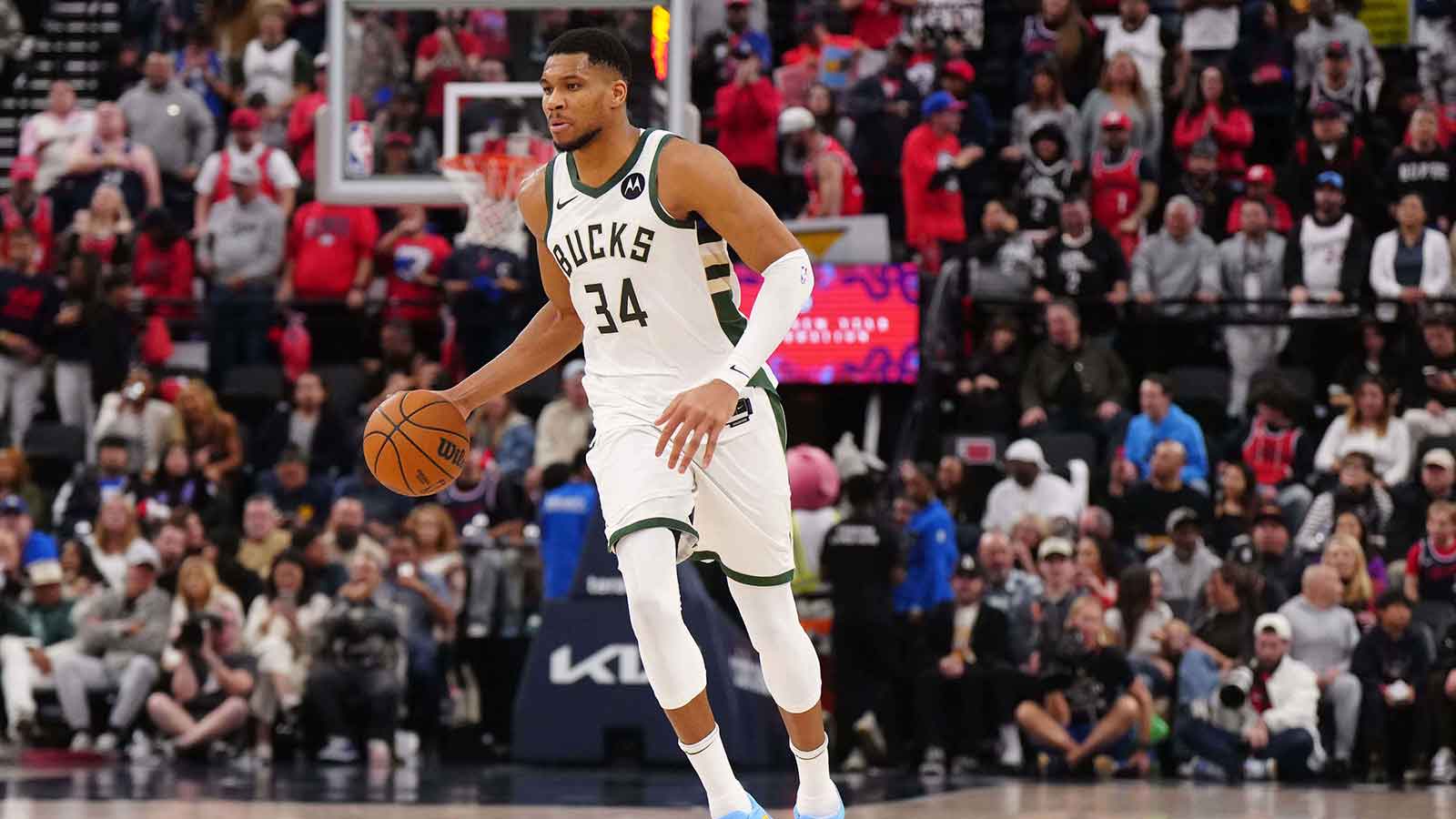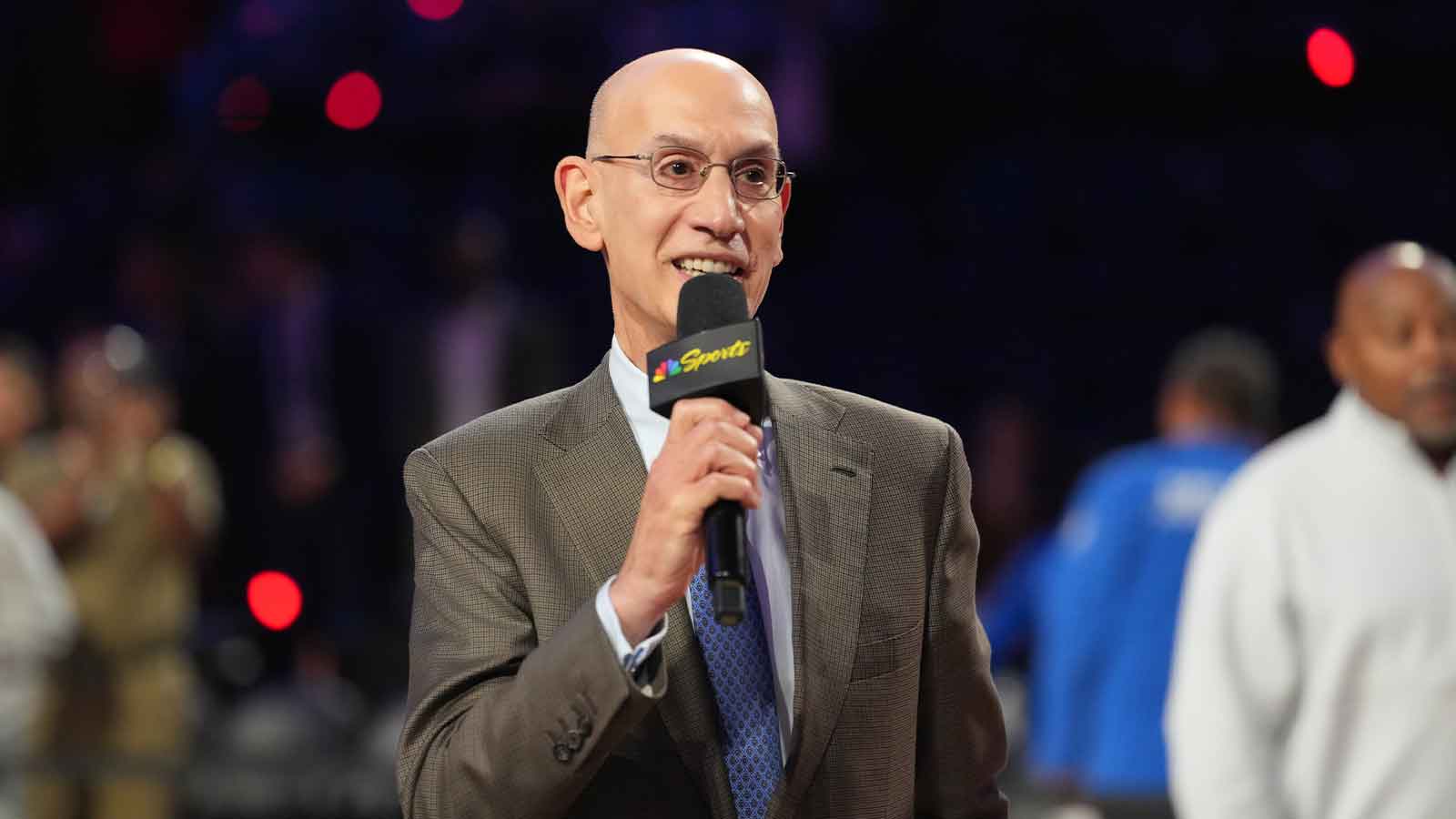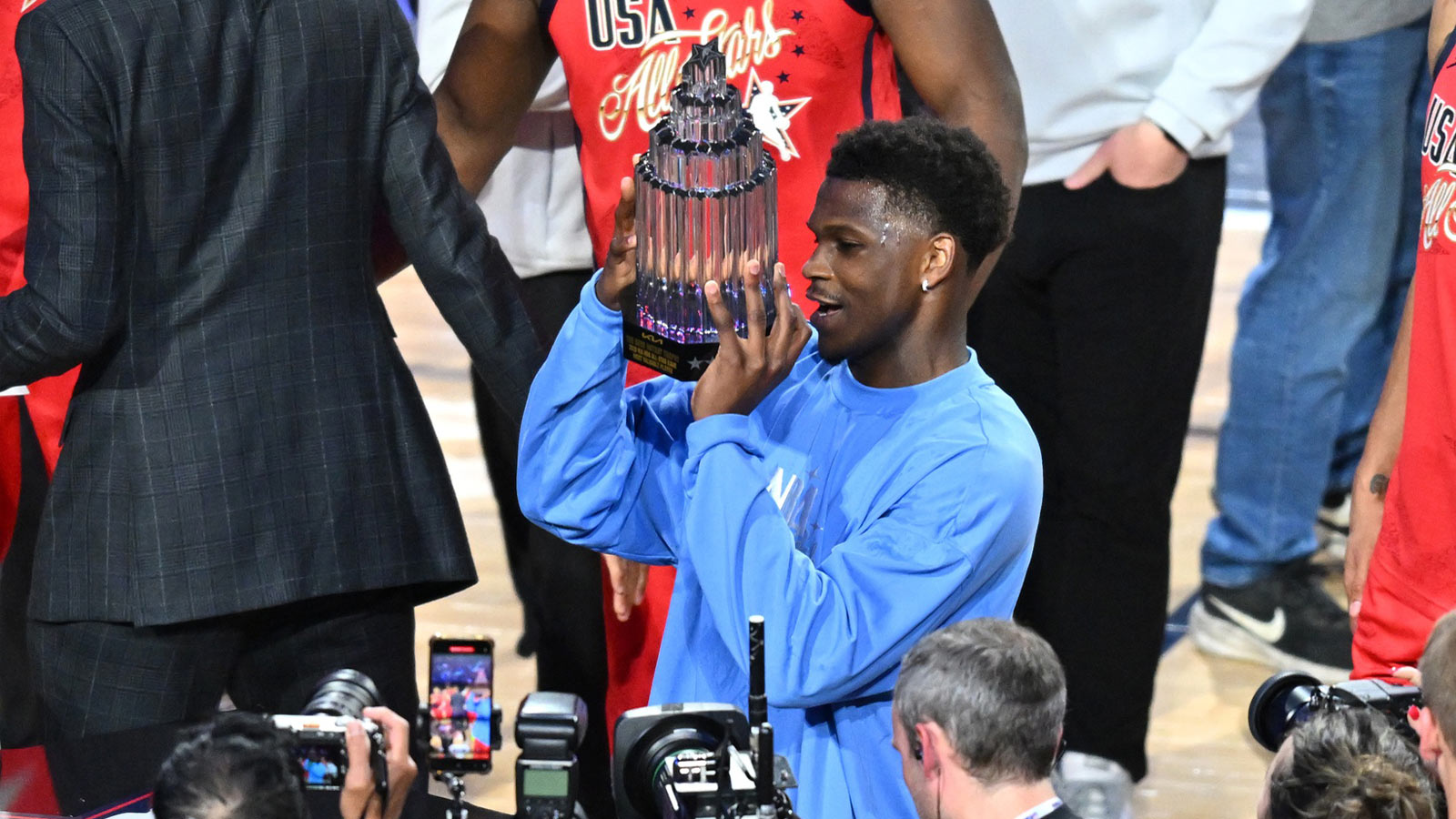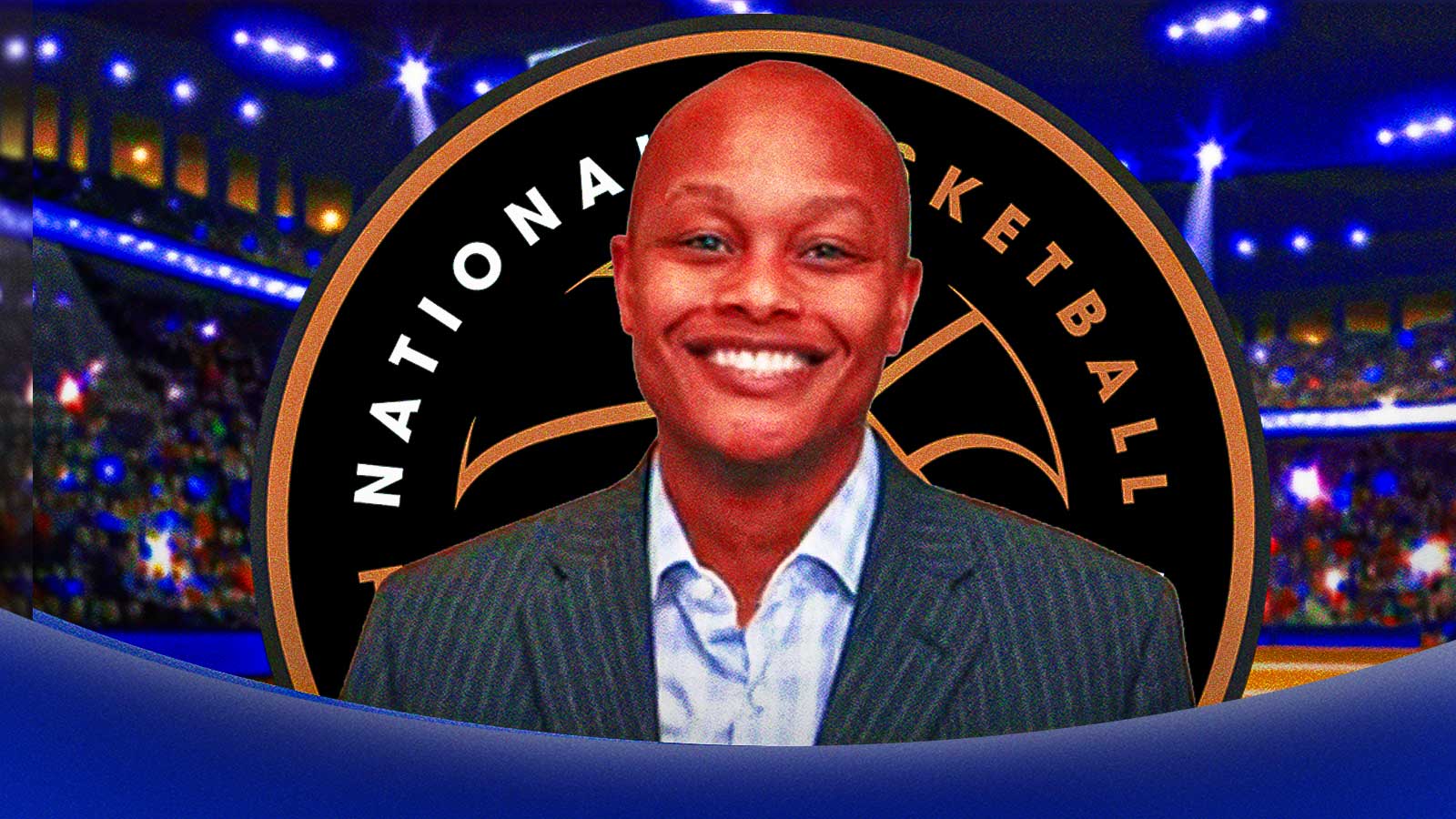For true college basketball heads, this Final Four is perfection—all four teams have distinct styles and identities and are packed with intriguing backstories. For NBA Draftniks, though, it's pretty fallow ground. The cocktail of the transfer portal, NIL and an extra year of post-COVID eligibility have caused the best teams to skew older and load up on older players rather than roll the dice on unproven freshmen; outside of Brandon Miller, Jarace Walker and Anthony Black, no other freshmen was a major positive contributor to a Sweet 16 team. As such, the teams in the Final Four (FAU, San Diego State, UCONN and Miami) are all chock full of great college players, but are largely devoid of guys who will become good NBA ones. Still, there's talent if you look for it— Jordan Hawkins, Donovan Clingan, Andre Jackson and Isaiah Wong are the four best 2023 NBA Draft prospects in the Final Four.
1. Jordan Hawkins, Connecticut
As one of the best shooters in college basketball, Jordan Hawkins is the only player in the Final Four who's guaranteed to be a first round pick in June. After a quiet freshman season, Hawkins exploded as a sophomore, scoring 16.3 points and draining exactly three three-pointers (on 38.5 percent shooting) per game. Although Hawkins is undeniably UCONN's most dangerous perimeter scorer, he does most of his damage without the ball. Like fellow Huskies Rip Hamilton or Ray Allen, Hawkins is adept at slinking around off-ball screens to get open for a shot. This versatility and portability is what elevates Hawkins from merely a good shooter to a great one. By staying in constant motion, he puts defenses into a state of permanent ambivalence, forcing them to split their attention between his movement and the primary action of the play.
While Hawkins is an elite shooter, the rest of his game is much less refined. Outside of shooting, he's a relative non-factor on offense—he basically doesn't score inside of the arc, shooting a gnarly 44.3 percent on twos; he barely averaged more than one assist per game. Similarly, Hawkins is overmatched on defense. At 6'5 and 195-pounds, Hawkins isn't big (or strong, or fast) enough to contend with starter-level NBA wings, even if he's a game help defender. In this sense, Jordan Hawkins is like a less extreme version of Duncan Robinson. If he's an awesome shooter, he's a very useful player—but if he's merely a very good shooter, his value craters.
2. Donovan Clingan, UCONN
Stuck behind Adama Sanogo, UCONN's gigantic center and leading scorer, Donovan Clingan plays just 13.2 minutes per game, but what a glorious 13.2 minutes per game they are! Standing 7'2, 265 pounds, Clingan is so massive that he more or less breaks basketball. On a minute by minute basis, Clingan is Wilt Chamberlain, averaging 31.2 points, 25.1 rebounds and 8.1 blocks per game. He has the rare gift of making nearly every shot he takes (65.5 percent shooting) while ensuring that his opponent almost never makes their own. When Donovan Clingan is on the court, he rearranges the calculus of the entire game—UCONN's opponent can't drive, lest they run into him; UCONN's offense funnels him the ball because no college big can guard him.
While Clingan's size is the source of his greatest strength (which happens to be his literal strength), it also limits his possibilities. Namely, he's solely a drop coverage merchant since he's too big and slow to hedge or switch. Against the best NBA guards, this could be a problem if Steph Curry or Damian Lillard drag him out into deeper waters. But that's a future problem—Donovan Clingan probably won't even declare for 2023 NBA Draft, but will enter next year as a potential lottery selection.
3. Andre Jackson, UCONN
Whereas Jordan Hawkins can only really shoot, Andre Jackson can do just about everything besides shoot. By virtue of being best ball-handler and passer on UCONN, Jackson functions as their de facto point guard, handling most of the ball-handling and leadership duties while Hawkins gallivants around screens. Although Jackson's jumper is truly busted, he manages to make do in other ways; he's a heady passer, who can rifle the ball through sliding windows in transition and a clever cutter who can sneak to the rim while defenses are preoccupied with Hawkins or UCONN's big man battery of Adama Sanogo and Donovan Clingan .
Defensively, Andre Jackson is a monster. On the ball, he has the quick feet and flexible hips to mirror ball-handlers and repel them from dangerous areas of the court. To wit, he's equal parts brainy and instinctive as a help defender, smart enough to shepherd his teammates through complicated switches and rotations, but reactive enough to make rotations to plug any leakages that might arise. But despite his manifold goodness, Andre Jackson's shooting might torpedo his chance to secure a guaranteed contract in the 2023 NBA Draft. There's simply not a huge demand for off-ball wings who can't shoot, but Jackson is so excellent at so many things he might be the exception.
4. Isaiah Wong, Miami
The reigning ACC Player of the Year, Isaiah Wong is a hooper, a bucket and a problem. Alongside teammate Nijel Pack, the 22 year-old Wong is the most explosive guard left in the 2023 NCAA Tournament. At times (i.e. most of the time), Wong is unstoppable—college defenses simply lack the ability to contain a guy who's this fast and who shoots with this much range. Against Indiana in the second round and Houston in the Sweet 16, Wong looked downright Donovan Mitchell-ish, flaying elite teams with his quickness and shotmaking en route to 47 points across the two games. So, what's the catch?
The problem with Isaiah Wong is that he's not quite good enough as an NBA player to do the things he's best at. It's one thing to hijack the offense to get off a Donovan Mitchell impression when you're playing with kinesiology majors; it's another thing entirely to do so when you're playing with Donovan Mitchell. Every NBA team has guys who are better shot creators and primary ball-handlers than Wong and Wong hasn't shown that he has the complementary skills to fit around them. Unless Wong becomes a more flexible player, he doesn't have a path to contributing in any meaningful way. The question isn't whether Isaiah Wong is good enough to get picked in the 2023 NBA Draft; rather, it's whether he's good enough in the right ways.

